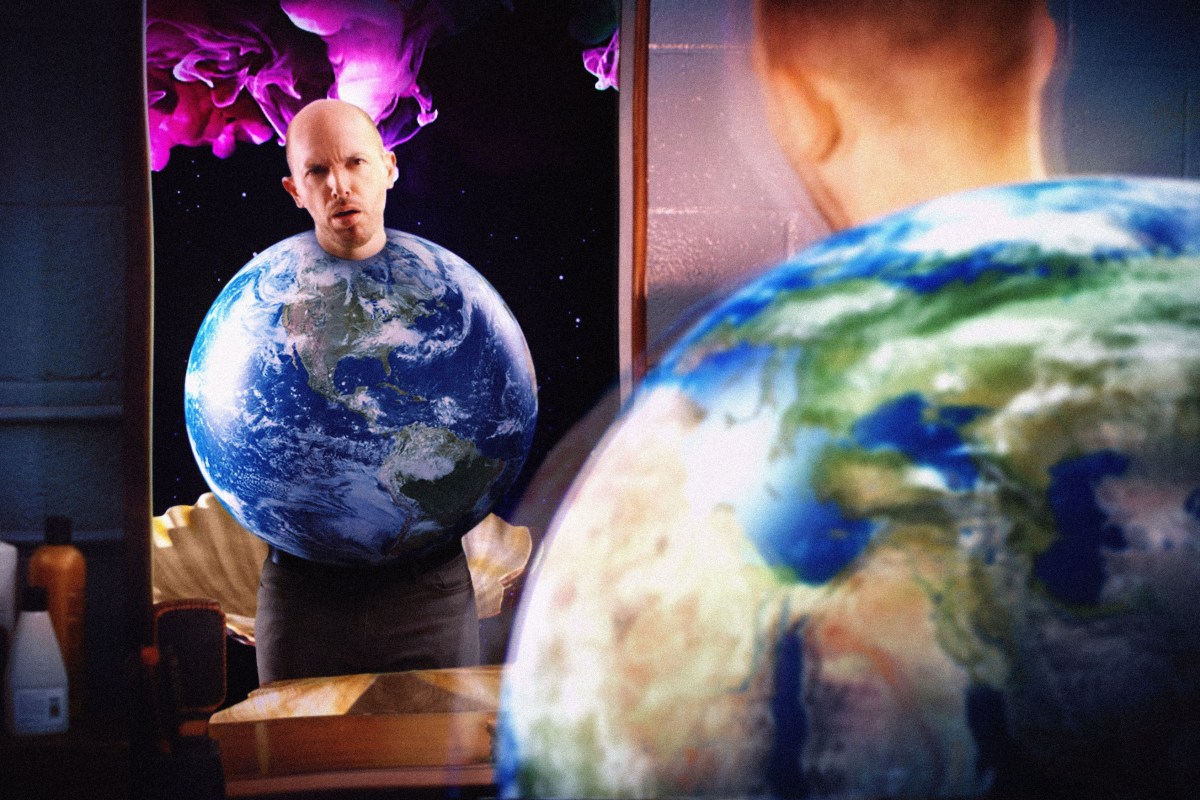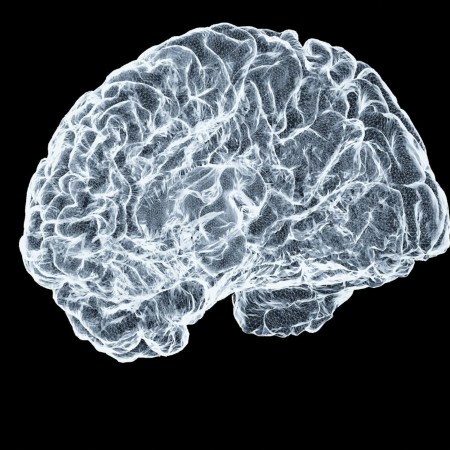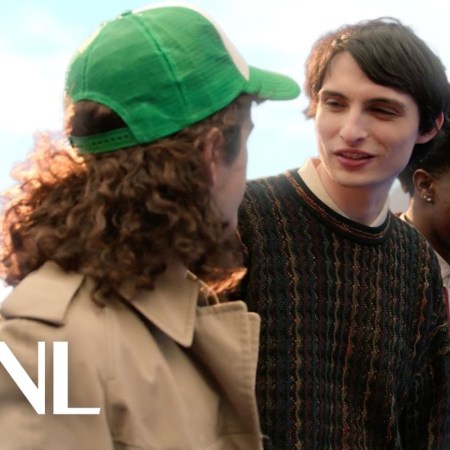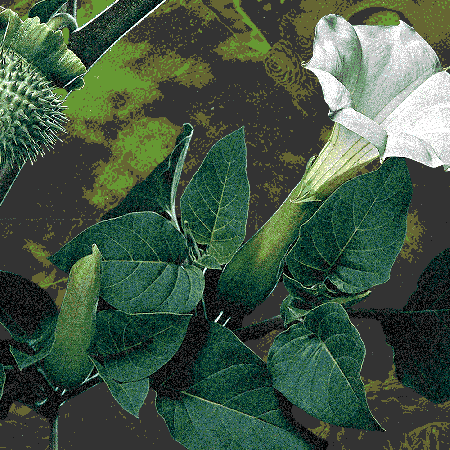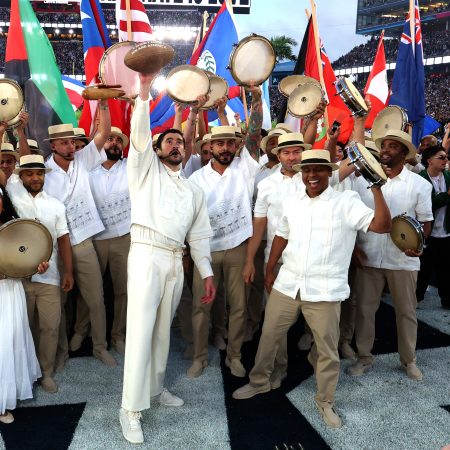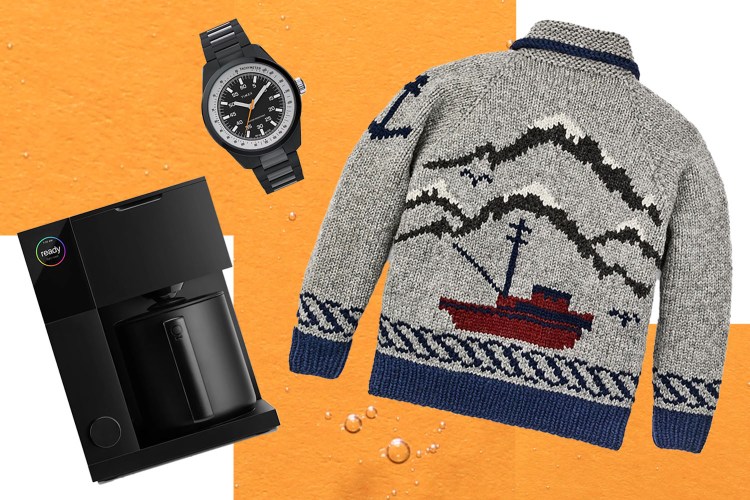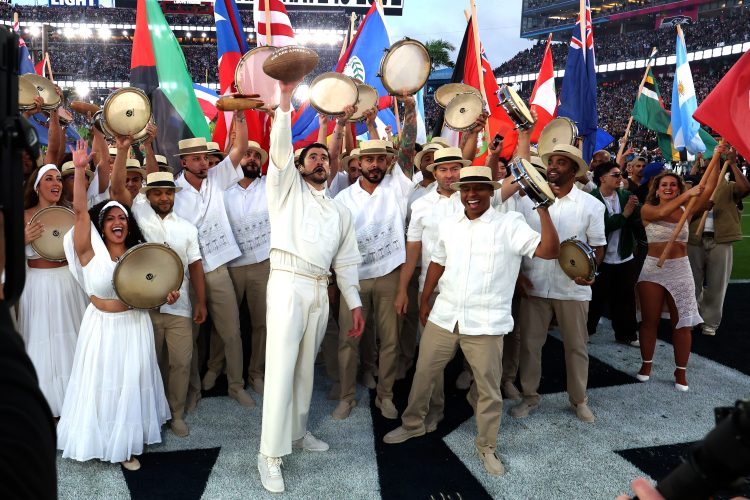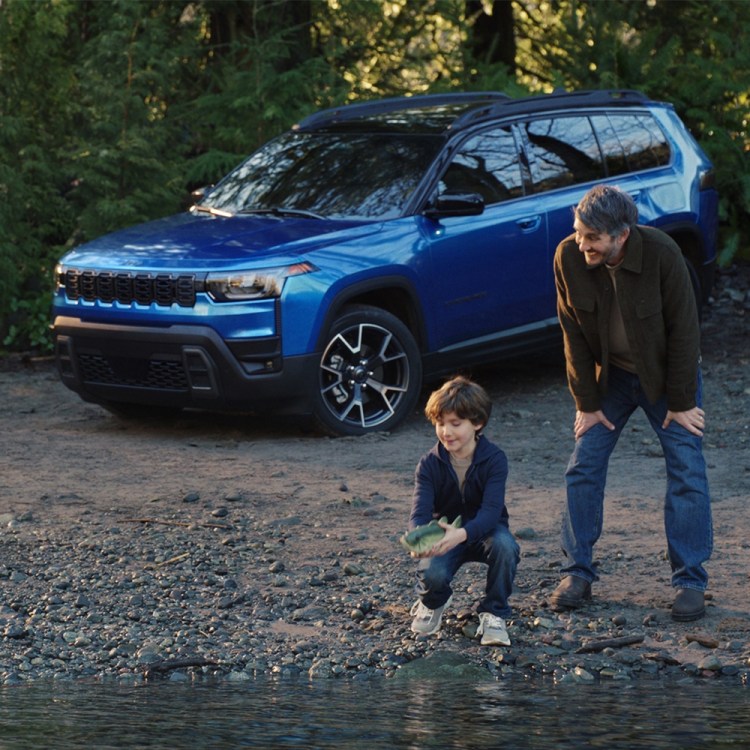For those of us who have never experimented with hallucinogenic drugs, our only frame of reference is what has been presented to us by other people — whether that’s through pop culture or the recounted experiences of friends. Oftentimes, what that means is we’re left with a pretty stereotypical and limited understanding of those drugs. (After-school specials, for example, would have you believe that dropping acid will either turn you into a burnt-out Deadhead or some sort of grizzled psychotic trapped on a permanent bad trip.)
Fortunately for us, writer/director Donick Cary rounded up some of the world’s best storytellers — comedians, actors, musicians — to guide us through the world of psychedelics for his new documentary, Have a Good Trip: Adventures in Psychedelics (streaming on Netflix beginning May 11). Nick Offerman appears as a professorial guide to the basics, while stars like Sarah Silverman, Sting, Ben Stiller, Paul Scheer, Will Forte, Rosie Perez, A$AP Rocky, Nick Kroll, Lewis Black and more recall their wildest experiences with hallucinogens. Those fear-mongering after-school specials are spoofed in segments hosted by Adam Scott, and while the film highlights some of the hilarious things that have happened to people while they’re on acid, it also broaches the potential mental health benefits of these drugs and offers up helpful tips to people looking to experiment. (Never look in the mirror, for one.)
We caught up with Cary — whose work includes writing and producing jobs on Late Night With David Letterman, The Simpsons, New Girl, Silicon Valley and Parks and Recreation — to discuss how he got so many celebrities to open up about their acid use, how making the documentary changed his perspective on psychedelics and more.
InsideHook: Tell me a little bit about what inspired you to make this film.
Donick Cary: It was a chance encounter at the Nantucket Film Festival. Crazily, it was 11 years ago, but there was an afternoon I ended up hearing stories from Ben Stiller and Fisher Stevens just about hallucinogens. We were all sharing stories about experiences we had, and I was like, “Well these are wonderfully funny.” This is a taboo subject that no one ever talks about, but whenever you have a lunch party or something and people start sharing stories, everyone has one or knows someone with one. And I was like, “Why aren’t more of these stories out there? How fun to get in, animate or reenact these and bring to life these weird things.” That’s where it started.
One of the things that I think makes the doc so interesting is that it includes interviews with people audiences might expect to have a lot of experience with hallucinogenics, but it also includes people like Ben Stiller, who talks about how he tried acid once and decided that it definitely wasn’t for him. Was it important for you to include different perspectives?
Yeah. And that really developed over the course of making it. I originally started — I’m a comedy writer and producer first — and I was like, “Well, these will be funny if nothing else.” So I started there, and then as I got into it I realized, “Oh, I’m really getting a huge variety of experiences.” Some almost cautionary tales, like Ben’s, are like, “This isn’t made for everyone.” [Some are] very good practical advice, which I realized was nothing I had when I was growing up and drugs were kind of out there and presented in a “just say no” world. That was like, “Oh yeah, if you take them, you’re going to jump out a window.” So there was no real factual information.
As I started to do these interviews, I realized, “Everybody’s brain is different. The set and setting and the situation and the work you do that go along with this is different for everybody.” And if you have some practical advice, that can be really powerful, but also know that they’re not for everybody. I guess when I had Ben’s story, it was easy to get stories that were like, “This crazy thing happened!” But then I started to get some stories that were people who had life-changing experiences or realized what their calling was or changed their view of — like Carrie Fisher talks about being bipolar and then these drugs helped her sort of turn the world upside down in a way that made it feel normal, and she started a path towards some normalcy. So it was starting to open this broad range of issues and I was like, “Well, we have Ben on one end, which is like, ‘Oh, this makes my brain crazy. I can’t do this,’ all the way to someone like Sting or someone who found it as an incredible tool that helps him manage everything.”
You mentioned Carrie Fisher, and I think one of the things that also is really cool about this is that you’ve got interviews with Carrie Fisher and Anthony Bourdain, who are sadly not with us anymore. And I’m not sure exactly what the timeline was on filming those interviews, but I’m guessing that they may be some of the final interviews that each of them did. How did those come to be?
I’m a huge fan of both of them and was really lucky to get them. I felt like both of them did such amazing work in the world and shared ideas. They were a funny pair because Anthony was an amazing storyteller, somebody who you sat down and talked to and he just rattled off a perfectly formed story. And Carrie was the one who had one million experiences and then tried to tell them all at once in sort of half sentences that looped together into one big impression of life.
So Anthony, I met in his office in New York. It was really like the world he had created for his show and travel and food and music and Hunter Thompson. All those references are big things for me, so it was a thrill to be there with him and get to experience within the way he had created, the way he works. And Carrie invited us into her home and just let us look around. She was like, “You got to look at my house. It’s the acid house.” This is in the movie. But you walked around and you’re like, “Oh, she really saw the world as this just sort of a psychedelic setting for almost anything.” The way she dressed, the way she decorated, the music she played — it was really intimate, both the setting of the interview, but also the revelations she shared from her brain. Anthony, too. All these people were like this combination of an intimate setting for the interview, but also this incredibly intimate view of what their brains revealed on this stuff.
And to the start of that question, I would offer that getting these interviews was very haphazard. I would say we had like a one-in-10, maybe even one-in-25 success rate. We asked everybody. And a lot of people had experiences but didn’t want to share them or are raising kids and didn’t want to get into a tricky area, have dealt with addiction issues — which aren’t part of this — but didn’t want to talk about drugs at all. There were a lot of “nos”, even from people you would expect would happily talk about it. And we would have this very random thing. We worked with Central Talent Booking and just put out the word to everyone, everyone. And very randomly, like once every two weeks I’d get an email that would say something like, “Anthony Bourdain can meet you in six weeks in New York at this time. Carrie Fisher can meet you right now at her house, and Ozzy Osbourne’s available on February 6, two years from now or whatever you would like.” Well, I’m not going to say no to any of those.
Was there anyone who surprised you in terms of either the fact that they agreed to talk to you or whatever their experience was? Was there anything that really, based on your preconceived notions about some of these people, caught you off-guard?
Yeah. There were some that I went in very skeptically. Like Deepak Chopra, I went in as a skeptic, prepared for anything. And he spoke so eloquently about his psychedelic experience and about the positive path that it can take, but from really knowing a lot of the science. And so I was impressed and loved that conversation, somewhat to my surprise.
I think Sting was another one where. I grew up a punk rocker and well, a music fan. I’ve also loved The Police. And then there was a point where it felt like Sting might be getting a little New Age-y for me. I’m not sure. So I kind of went into that going like, “Might this interview just be sort of, for lack of a better word, too New Age-y for me?” And then I got there and Sting was so engaged, so eloquent about about this in such a rational, wonderful way, talking about the positive effects this can have and how he’s used them in his life … I was really, really impressed. And it’s one of those things where he’s got beautiful blue eyes, and I think I’m starting to have a crush on Sting. What’s happening to me? Those were surprising.
The other one that just jumps to mind was Rosie Perez. I did not know what to expect. And she told a story, she grew up a Catholic girl, no drugs in her life, and got dosed. And then told the story about unwittingly going through this incredibly intense acid trip and what it revealed about her upbringing and her life and everything. But I also just remembered, she’s been in a couple of shows recently, but when I did the interview I hadn’t seen her in anything recently and I was just like, “Oh my God, she’s such a superstar and so fun to talk to.” Funny, wonderful. That was just a great thing. But in general, these interviews, because they require a little bit of vulnerability for people to share these stories, the interviews were incredibly giving from people that I sat down with. It was a wonderful hobby to have for 11 years.
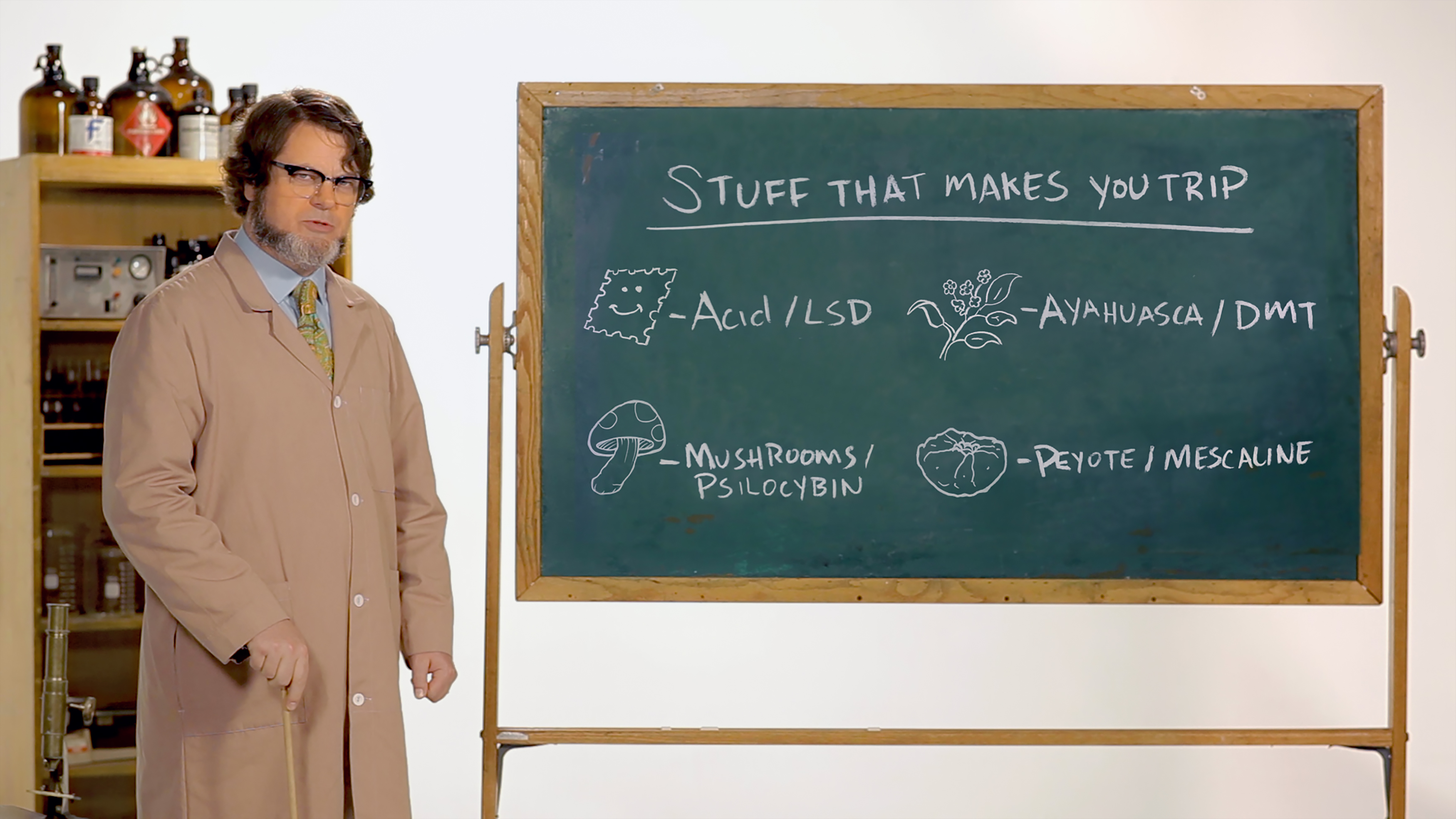
Tell me a little bit about the decision to weave in that after-school special spoof with Adam Scott throughout the doc.
So there was a lot of debate on [whether] we could have veered more serious at times. This initially came out of this idea of entertainment and being funny, and then was like, “Oh, we have some bigger things here and bigger revelations, so that’s good.” But there’s still a place for some comedy. But then the real thing that I was hitting on was drawing this contrast between irrational conversations and rational conversations. I’m raising kids and want them to have real factual information and real conversations. And I think that after-school special was low-hanging fruit for comedy, but also really was what I grew up with.
With these “drugs” — after Leary brought them out of the laboratory and they got out into pop culture — there’s this real pushback from mainstream culture to go, “These are dangerous! Let’s not talk about them!” It kind of all got lumped up in this overheated conversation. And so the shows I watched as a kid were all just like, “If you even touch a drug, you’ll jump out a window. If you even do this, you’ll never have your brain again.” Again, as a skeptical teenager, I was just like, “Well that’s not the whole truth. What is the real truth?” I’d go to either Dead shows or Dead Kennedy shows, the whole spectrum of shows, and there’d be psychedelics present. And I was going like, “Well, not everybody’s jumping out a window, clearly. There must be more to this story.”
So the reason I left [the after-school sequence] in, I really wanted to keep that contrast of, these things have often been presented in a hysterical way. And what we’re giving you in this movie is real people sharing real sober looks back on what they learned and experienced.
The doc also includes some talk of possible medicinal benefits of psychedelics in treating mental-health issues. What are your thoughts on that? Do you think there’s more research to be done there?
I think this is one of these things that there’s tools out there that our cultural biases and our arrogance and stuff stop us from using. This is definitely one of those areas where because we are afraid and there was this cultural hysteria, we sort of cut off even the chance to have a rational conversation about it. And it’s shown in laboratory settings and in safe settings with real scientists and doctors that these are tools that can be used for incredibly profound experiences that help with these problems that we’ve been stuck with in our society in mental health. Whether it’s addiction or depression or end-of-life anxiety, these have shown they can do what [used to take] years of therapy in an afternoon. Now, I would say I’m not an advocate that everyone should do it. That doesn’t mean everyone should just start taking psychedelics. But I would say I’m an advocate — personally coming through this, making this movie — for rational conversation, for careful assessment for everybody who thinks that these might be good for them. Really do the work first. Don’t do it cavalierly, as Carrie Fisher says. But yeah, I think with the help of trained professionals, setting intentions, doing the hard work. Brain exploration is hard work. So, when done with caution, it can be really powerful.
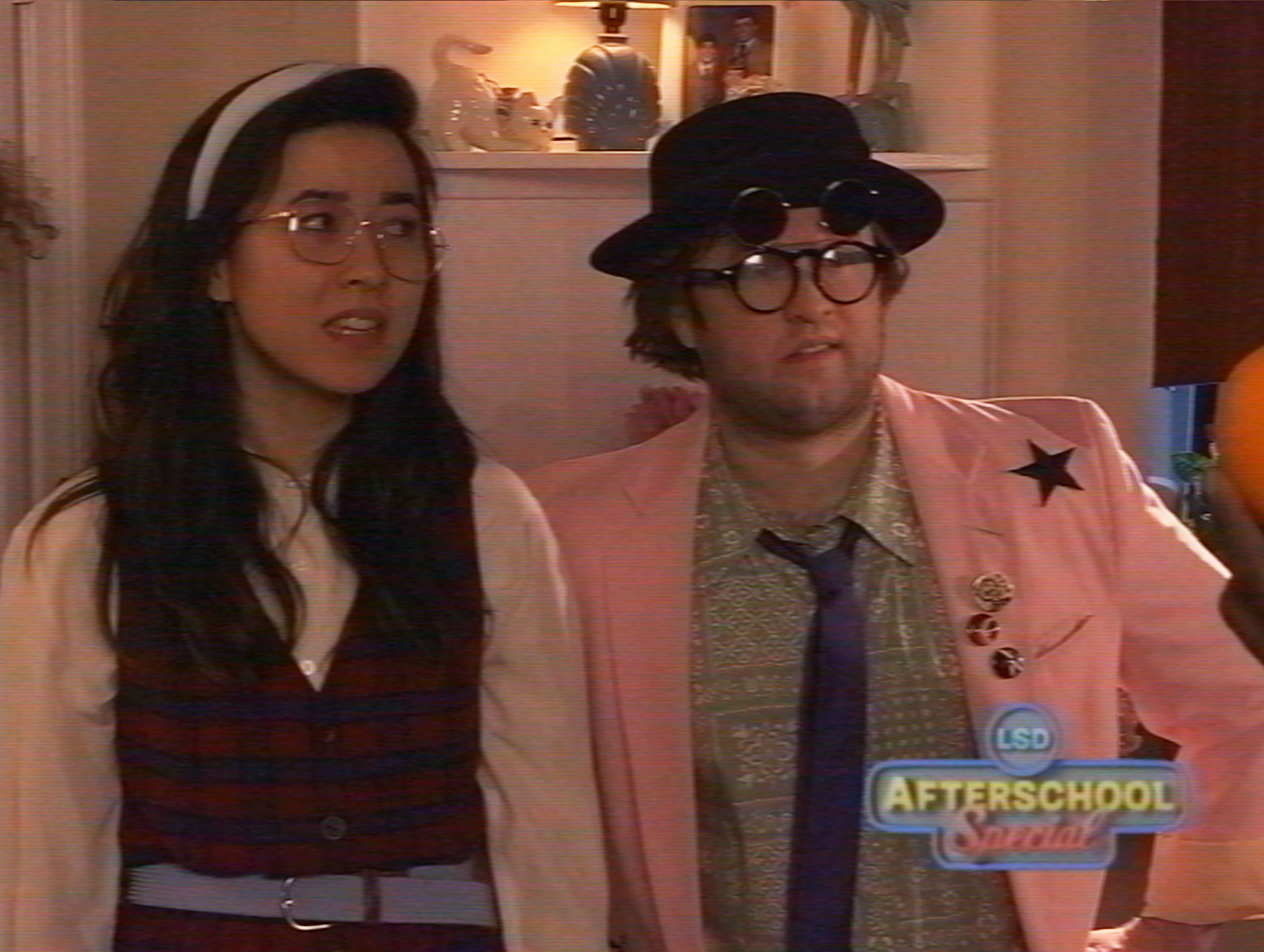
Was there anything in the process of interviewing everyone for this that changed your perspective of psychedelics?
So I grew up reading like Carlos Castaneda and The Electric Kool-Aid Acid Test. There’s great books that take you through the psychedelic experience and that really share. Even Hunter Thompson, Fear and Loathing in Las Vegas, give you these perspectives on it that are ways to understand the experience without actually doing any drugs. I had done a lot of that as a teenager. I experimented with a lot of things. I think the place where I may have gotten — oddly, it’s a little counterintuitive — a little more conservative was, my kids were growing up as I made this. And I really thought about, we need rational, mature conversations about this. Not that we’re going to the Electric Daisy Carnival or Burning Man and just taking handfuls of stuff that we don’t know where it comes from, et cetera, et cetera. Not that those aren’t great experiences. I think that’s great. But that we need more rational ways to explore this stuff, if that makes sense. So, in a weird way I got, as I was making this, kind of going like, “Oh yeah, there should be doctors with beautiful, natural settings for people to go and do therapy using this as an assist or the tool in that.” There should be more of that, for sure.
I want to ask you a little bit about the inspiration for animating all these anecdotes and stories from people. Because at one point, someone talks about this idea of movies and TV never really depicting an acid trip accurately. Was that something that you had in mind when you were thinking about how to animate these?
Yeah. My gut was that animation would be not just for psychedelics, but the best way to take us to different times and places because you don’t have to have someone playing someone else. You can actually animate them younger or fatter or older, whatever their story is. So it allows you to transport. I worked on The Simpsons for a long time also, and I was always amazed in The Simpsons that you could do bigger issues and weirder things that kind of slipped by because they were animated. And I thought, “Oh, well that’s a good combo here.” It was really fun to do trippy animated sequences — not that those perfectly express the psychedelic experience, but they give you a lot of tools to do it, especially when we didn’t have a huge budget to explore CGI. But then God bless — or whatever power you believe in bless — Steve Agee, who is the one who said that. He was like, “Yeah, they never get it right.” And I was like, “Oh, thank God. That forgives us everything.” We can just kind of make fun of the silliness of even trying to bring to life these things that only happen in your brain and you can only see on these drugs.
You can’t recreate them, because it’s not just a visual, it’s a feeling. We were talking about laughter at one point and how often on mushrooms, you just laugh. And it’s like some profound joke from caveman times has been revealed to you. That’s how deep that joke is, but you could never tell a joke that profound. You know what I mean? So he gave us the freedom to just do whatever we felt and kind of admit, “You can’t actually do this, so let’s have fun with it.” But in a bigger sense also, I wanted each storyteller to feel like their own separate thing and that they were almost like short films, and had their own tone and feel and vibe because each of the trips were from a different era and a different setting, and some are scarier than others, et cetera. So the challenge was coming up with multiple styles of animation for this, which I happen to have an animation studio, Sugarshack Animation. It’s easy to work with the team that I’ve worked with a lot and just go, “We’re going to basically develop 20 different TV shows for this one movie.”
What do you ultimately hope people get out of this doc?
I guess the big hope would be for people like Charles Grove, who’s in the movie as a UCLA scientist professor, a doctor who has explored this space since the ’90s, he was one of the first people to get FDA approval. He’s done exploration in a cautious but very positive way in treating mental health. And I would hope that people support research and safe spaces for this to be explored more. If people feel like this is something that might help them, seek out professionals in this space to help you figure out how you might be able to benefit.
This article appeared in an InsideHook newsletter. Sign up for free to get more on travel, wellness, style, drinking, and culture.
